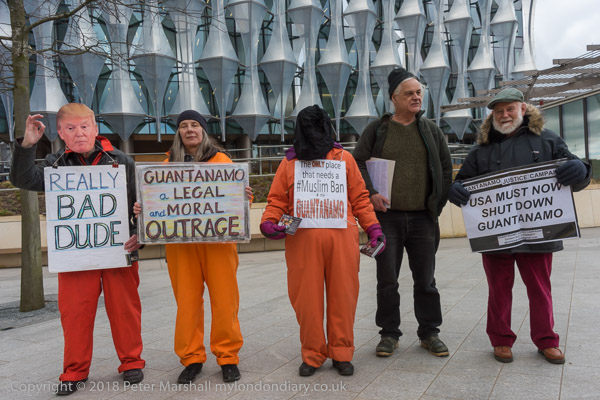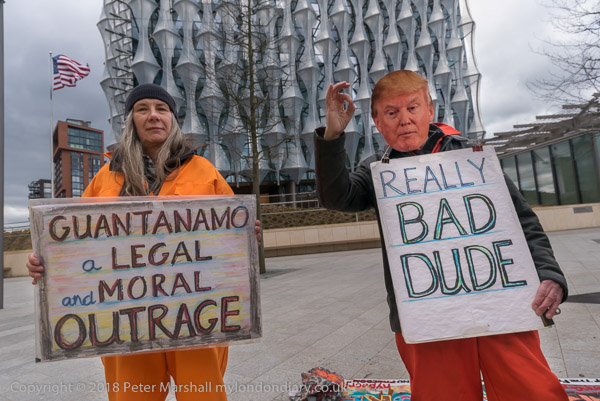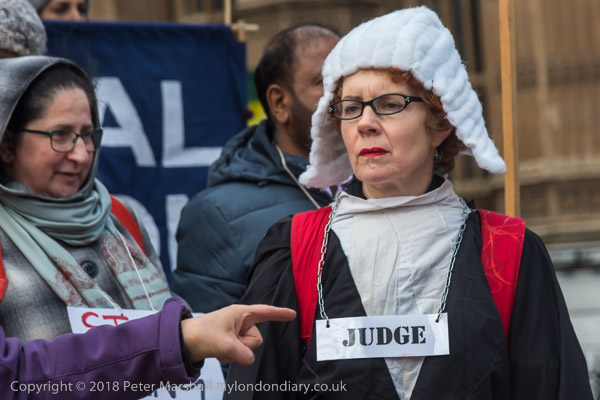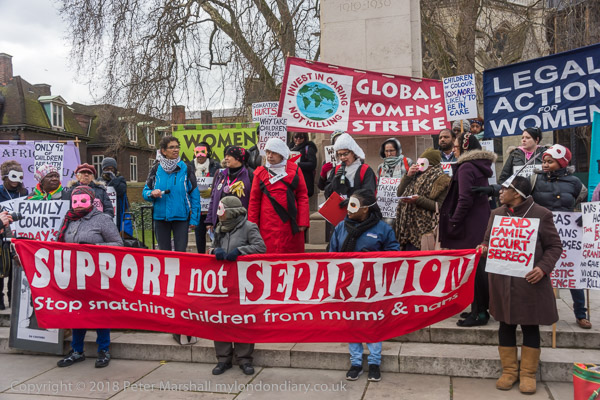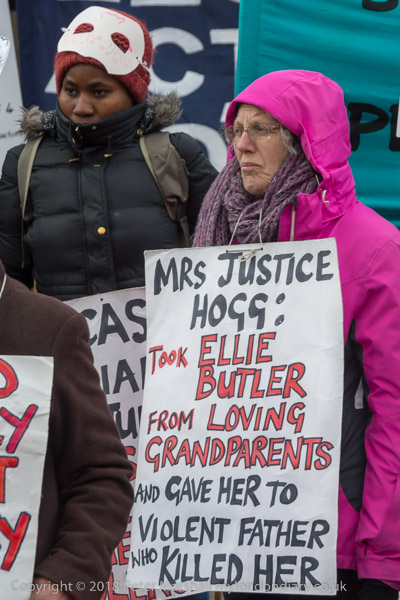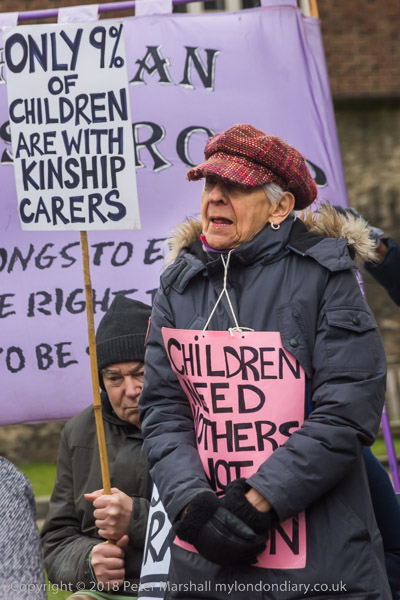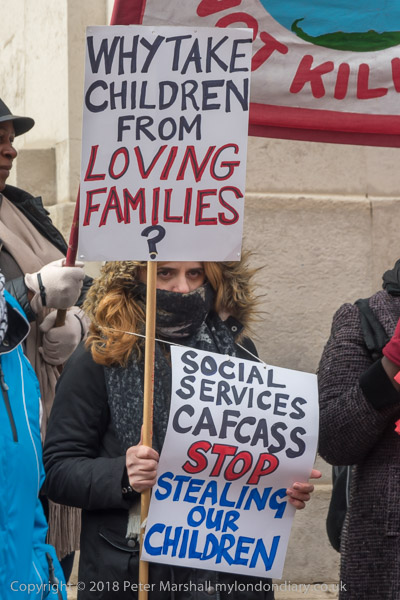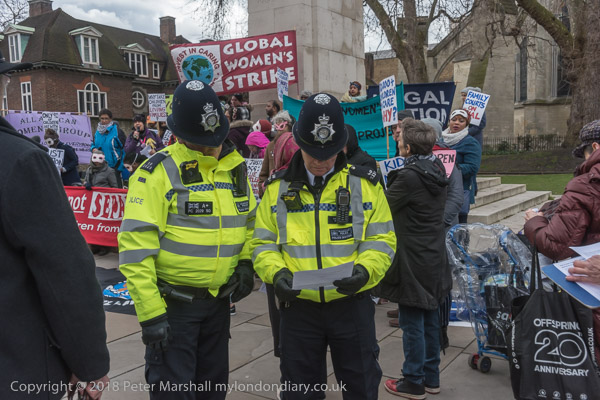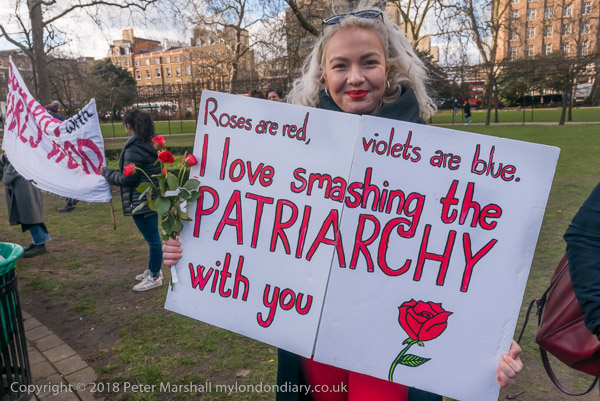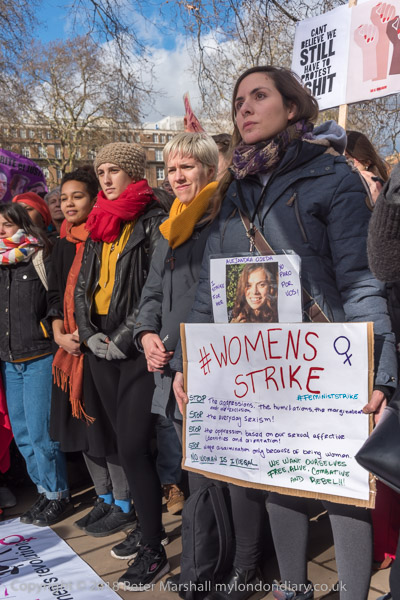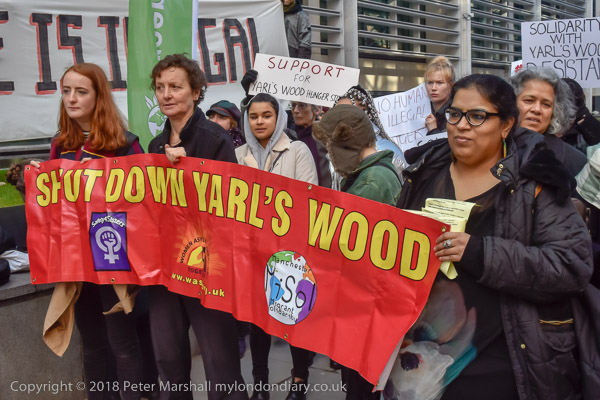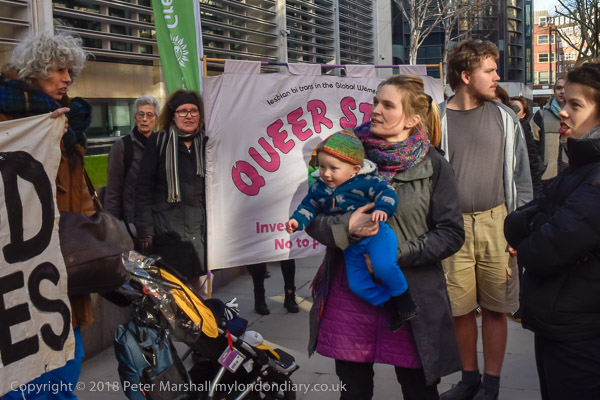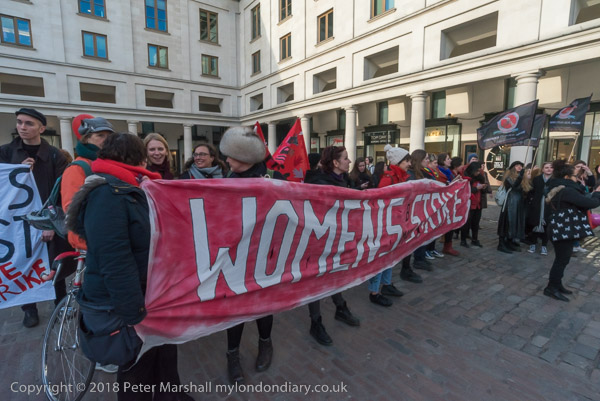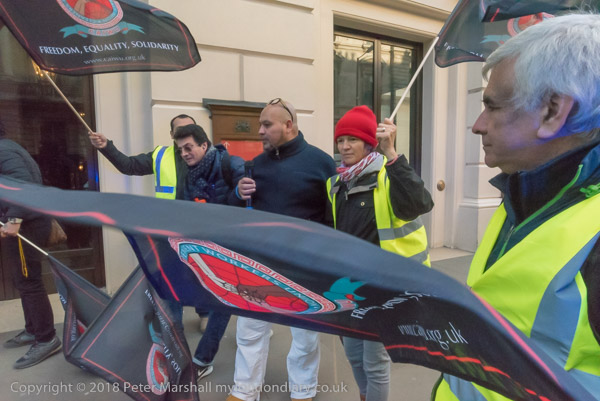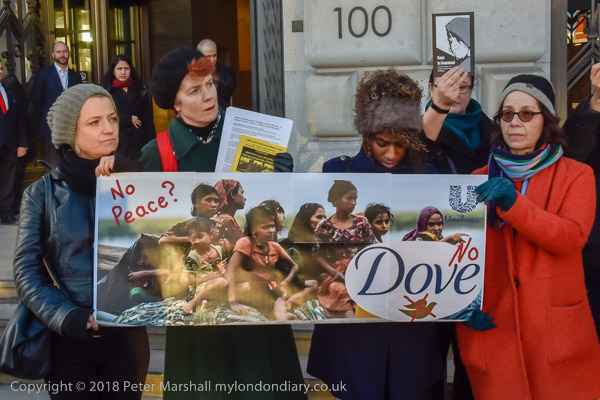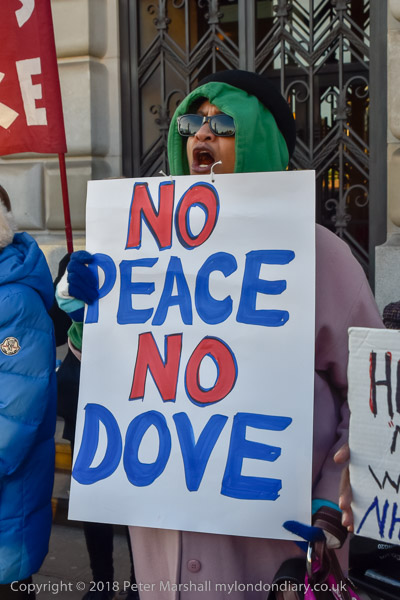Food Sovereignty, Big IF & Naked Cyclists: Saturday 8th June 2013 was another varied day of protests in London.
Food Sovereignty not Food Security – Unilever House, Blackfriars
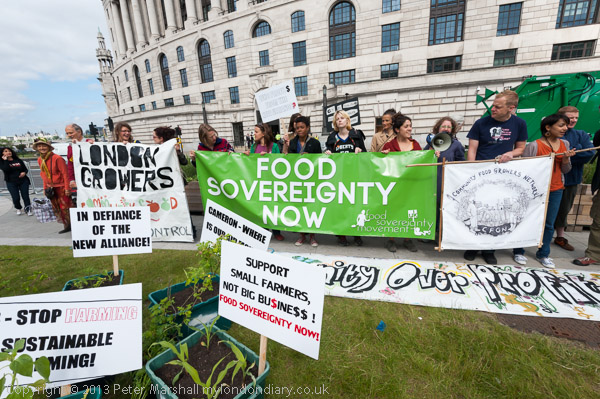
Friends of the Earth, War On Want and others held a protest outside Unilever House where David Cameron was addressing carefully picked delegates at his ‘Hunger Summit’. They were protesting against the ‘new alliance for food security and nutrition’, a special initiative launched by the G8 in 2012.
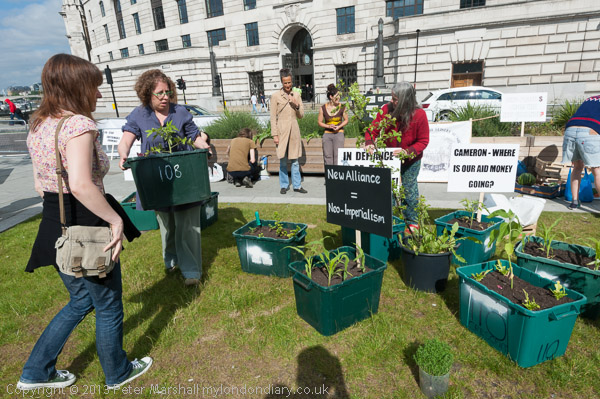
Cameron’s ‘summit’ and the protest came before a G8 meeting and Unilever’s iconic London offices overlooking the Thames at Blackfriars, was particularly appropriate as Unilever, along with other global agribusinesses such as Monsanto and Cargill are the major beneficiaries of the ‘new alliance.’
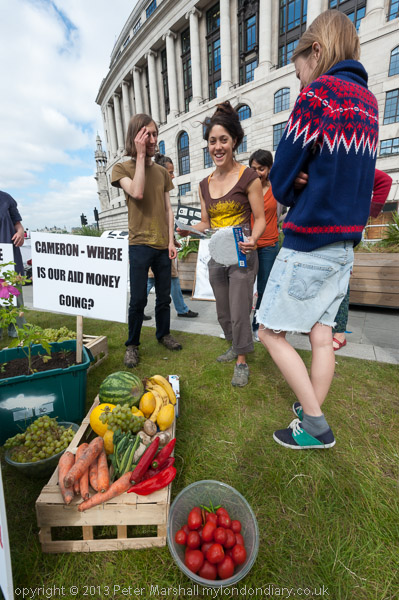
The G8 initiative will spend billions of dollars to finance the expansion of these agribusiness in Africa but damage existing landowners and farmers, who will either have to sign agreements to land grabs by the giant corporations and replace their traditional plants and seed with GM and other high-tech seeds and supplies or see their markets disappear.
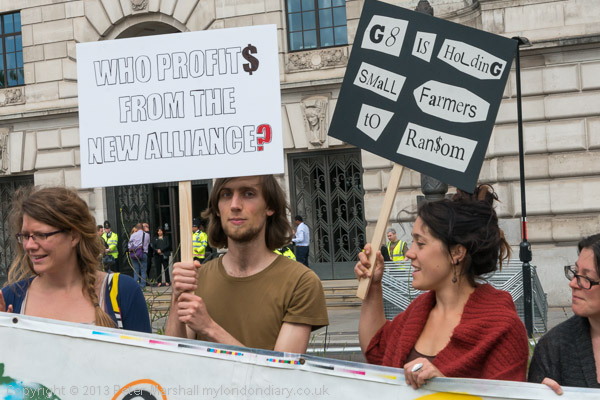
The initiative will marginalise small African farmers, driving them from their traditionally owned land, increasing unemployment and the movement to cities. As in India some will be driven to suicide as their only solution. It should increase agricultural output in the short term but most of it will be food for export or biofuels, and hunger will increase – along with the profits of the mega-corporations. Almost certainly all these technological fixes will in the long term fail, leading to further desertification.
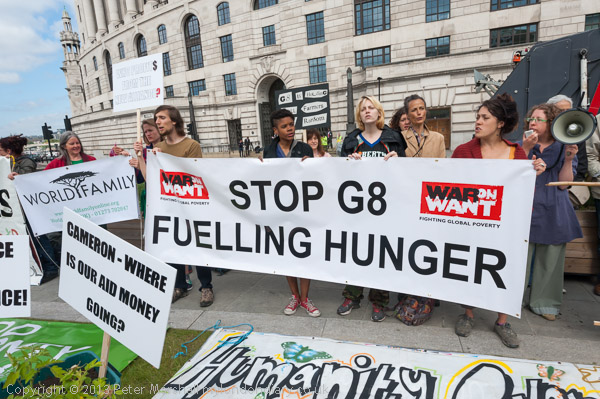
African farmers need support that increases their economic, social and cultural resilience, methods to increase their productivity through simple low-tech improvements in land use, that preserve and improve the soil, and increase water retention, that improve traditional crop varieties by proven old-fashioned methods. Various projects have demonstrated the success of these approaches – but they fail to increase the profits of multinational companies so do not attract support from the G8.
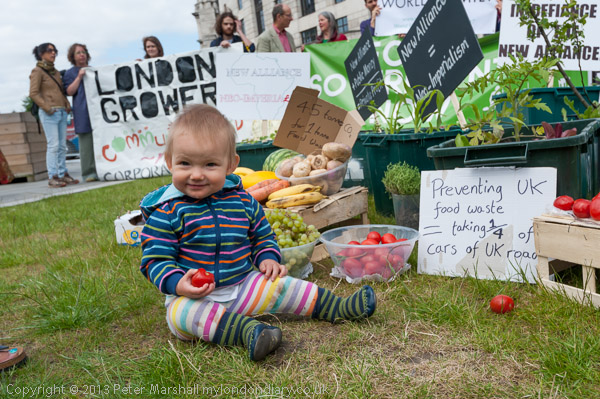
Almost 200 African groups signed a Statement By Civil Society In Africa which condemned the proposals, describing them as “a new wave of colonialism”, pointing out that they work to the benefit of the corporations and not for Africa.
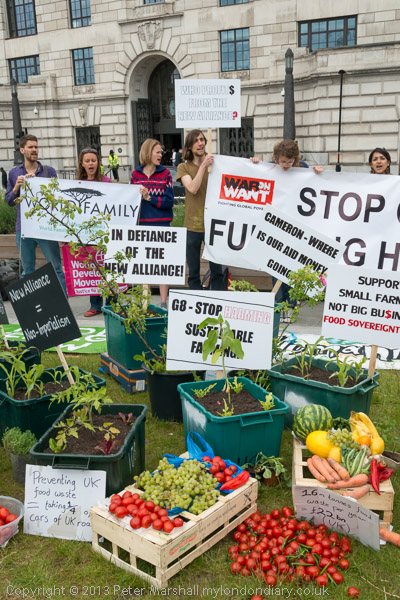
This was a peaceful and family-friendly protest, with campaigners bringing containers with growing plants and baskets of fruit and vegetables to set up a small garden on the road island in front of the main entrance to Unilever House.
More about the protest and the Statement by Civil Society in Africa at No to G8 New Alliance on Food Security.
Big IF Solidarity Walk – Westminster to Hyde Park
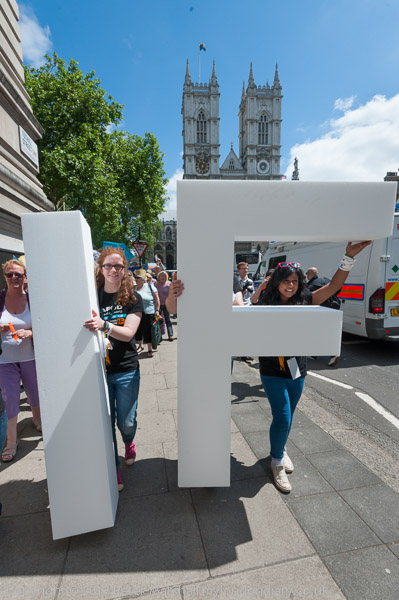
The second protest I photographed was also about global hunger, with thousands marching in solidarity with the one in eight people around the world who go hungry and to demand that the G8 world leaders tackle the root causes of global hunger.
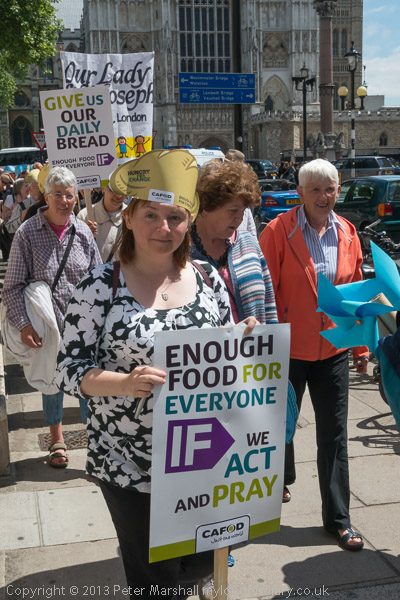
The problem isn’t about producing food as “The world produces enough food for everyone, but more than two million children die every year because they can’t get enough to eat.” The problem is the unfair distribution of wealth and power which means many of those who need food don’t get it, while others have more they can eat.
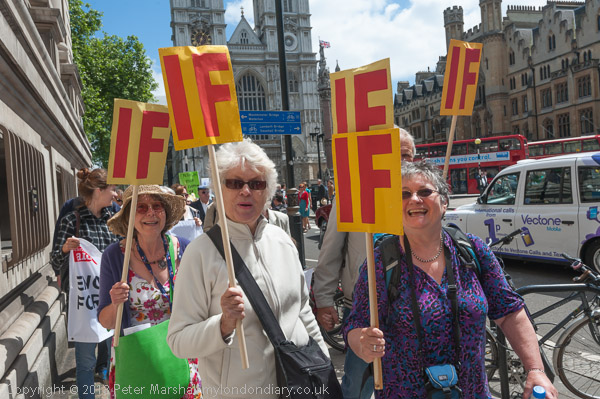
The walk to send a message to the G8 was supported by a wide range of organisations including Christian Aid, Oxfam, Cafod, Save the Children and many more who work in countries around the world, and many had begun the event by attending a service in a packed Westminster Central Hall in Westminster, the Methodist church where the first meeting of the UN General Assembly was held in 1946.
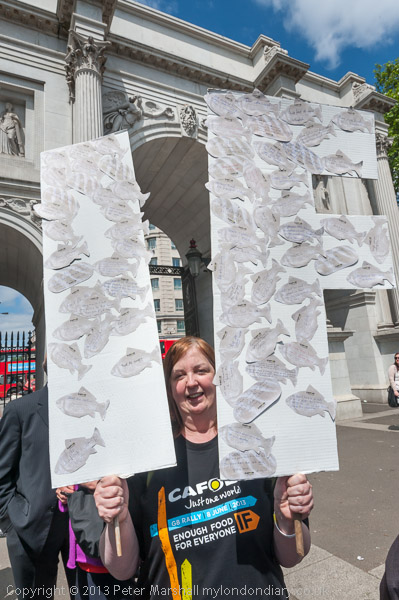
This wasn’t a march but a walk, with people taking a rather circuitous route and walking in small groups on the pavements, which made it rather more difficult to photograph.
More at Big IF Solidarity Walk.
World Naked Bike Ride – Marble Arch & Westminster
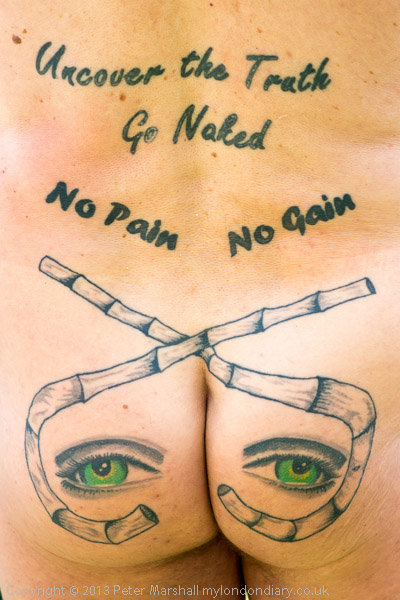
The World Naked Bike Ride is an annual protest against oil dependency and and the negative social and environmental impacts of a car dominated culture as well as a demonstration of the vulnerability of cyclists in traffic and to celebrate body freedom. It began in Spain in 2001 and has spread to London and round 70 other cities in over 30 countries.
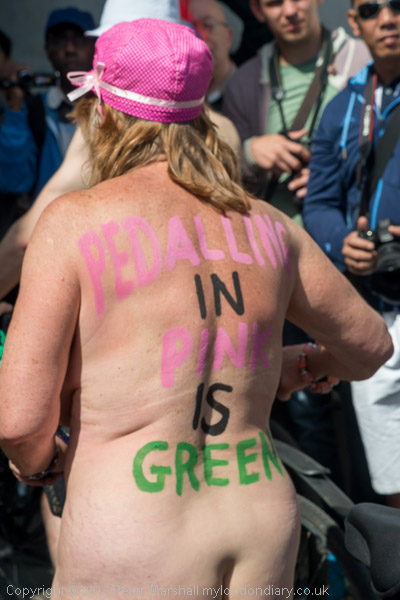
In London it has usually attracted around a thousand cyclists, along with a few others on skateboards etc, and provides considerable interest, with crowds of tourists stopping to watch and to photograph, and although everyone around me seemed to be greatly amused, there seemed to be little or no appreciation of the reasons behind the protest.
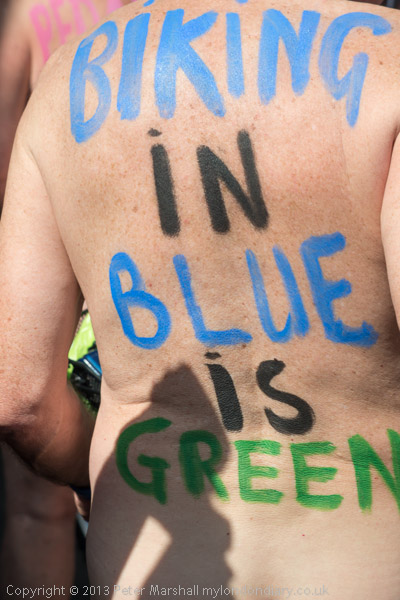
Not all riders are naked for the event, some riding partially clothed. The dress code is that people should ride ‘as bare as they dare’ and only the wearing of footwear is compulsory for safety reasons. Many riders have some creative body paint, some with slogans on their body to promote the ideas behind the ride, and I’ve chosen images for this post that show these.
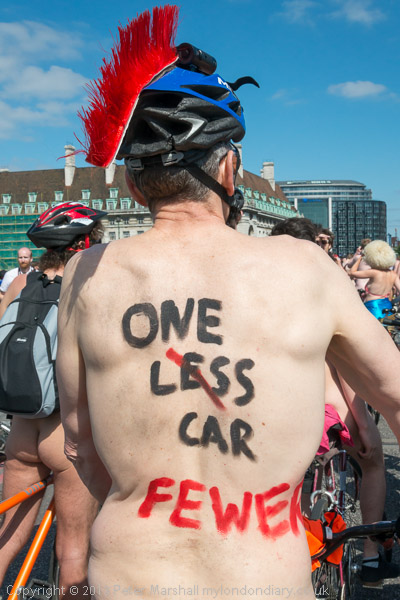
In 2013 the ride began at four different points, Marble Arch, West Norwood, Clapham Junction and near Kings Cross, with the routes converging on Westminster Bridge, from where they went on to ride to St Paul’s Cathedral and back through Holborn and Trafalgar Square to Hyde Park Corner.
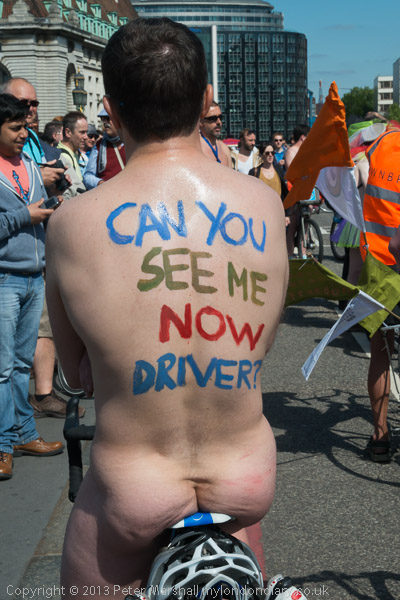
I went to Marble Arch for the start of the event there and later took photographs on Westminster Bridge where the four groups were intended to meet up, but tho cyclists from Marble Arch were held up and arrived after the others had left.
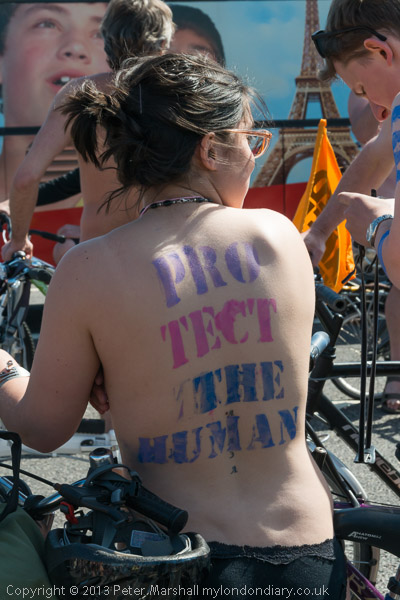
It’s a ride that attracts considerably more men than women as riders, although my pictures might seem to suggest the opposite. There are several reasons why I find the women more interesting, partly because I think more of them make an effort with body painting and other ways to create an impression. It’s also rather harder to photograph nude male cyclists in ways that many publications would find acceptable, and my selection of images is largely for submission to agencies.
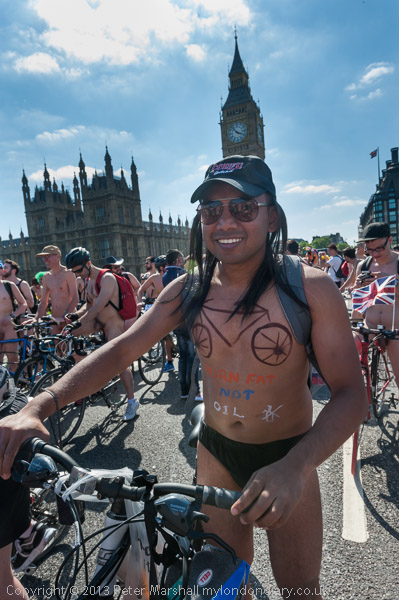
There are many more pictures on My London Diary at World Naked Bike Ride. At the top of each page of pictures I included the statement “These pictures include some nudity – don’t view them if this might offend you” above a long area of empty white space, with two links to either take viewers down the page to see them or back to the main June page.
